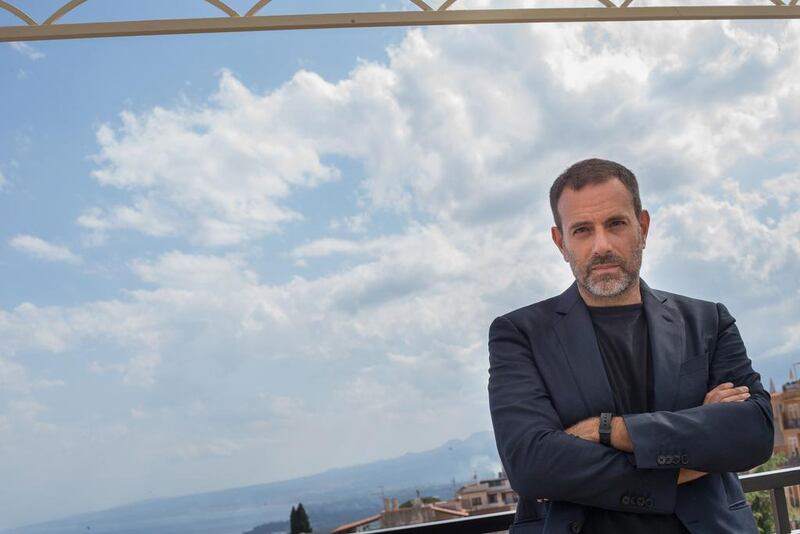The premise is simple: Lucio Battistini, a middle-aged personal trainer who coaches a water-polo team in his spare time, discovers that he has inoperable liver cancer. The doctor tells him that he has roughly three months of relative good health left, so after a little soul-searching, Battistini declines any treatment, and books an appointment at an assisted suicide clinic in Switzerland in one hundred days time. With this expiration date in place, he then sets out to live his final days as happily as he can, spending time with those dearest to him: his best friends, Umberto and Corrado; his wife, Paola; and their two children, 9-year-old Lorenzo and 6-year-old Eva.
Much of the success of the Italian director, screenwriter and film producer Brizzi’s first novel, lies in his depiction of his narrator. Battistini is a rather unremarkable everyman. He’s not somebody who has achieved anything especially extraordinary in the course of his life. His childhood dreams remained unfulfilled, plus he’s flawed in that most predictable of ways – when the story opens he’s sleeping on a camp bed in the back room of his father-in-law’s bakery after his wife discovered he’s been having an affair with one of his clients at the gym. Well aware that he’s been a “complete moron”, Battistini’s honesty allows us to regard his mistake as a momentary aberration in what has otherwise been a happy marriage. Realising the error of his ways, and with a finite amount of time to repair and resurrect their “shipwreck” of a marriage, his quest to win Paola back provides such much-needed, albeit relatively mild, tension as the countdown to day zero begins.
Brizzi's writing – deftly translated by Antony Shugaar – is clean, crisp and contemporary. The hundred-days formula makes for easy chapter breakdowns, and there are enough lists to rival BuzzFeed – things Battistini loves; things Battistini hates; things Battistini will miss about the people he loves; lists of gifts for his children's future birthdays – there's even a list of things to pack for a holiday: a family road trip around Italy that suggests the book is ripe for a Descendants-style movie adaptation.
It's testament to Brizzi's story that Battistini comes across as so likeable, but it's also evidence of the flippancy of the tale. One Hundred Days of Happiness deals in about as much gritty realism as an average Disney film. The tragedy, conflict and unpleasantness are all played down as much as possible. When we first meet Paola she's distant and unforgiving, but not especially angry or bitter; Battistini himself never struggles with his diagnosis, skipping the stages of denial, anger and bargaining, instead slipping comfortably and surprisingly speedily into peaceful acceptance of the arrival of "my friend Fritz" (he names the tumour after a phrase used in Italian "to describe hypocritical friends you don't want to name outright") ; and, perhaps most notably, Fritz's manifestation is a fairly sanitised version of the grim realities of an unforgiving disease.
Admittedly, the characters have moments of upset, but, all in all, it's a vision of impending death that's more Richard Curtis than Quentin Tarantino – something that will irk the more sceptical readers but please plenty of others. Whichever side of the fence you sit on, there's something admirable about Brizzi's ability to see this through to the story's conclusion. And given the book was a best-seller in his native Italy, it's clear there's an abundance of readers content to suspend their disbelief for the sake of a heart-warming tale. Indeed, the book's success is reminiscent of that of Fredrik Backman's A Man Called Ove, the Swedish novel that became a word-of-mouth best-seller that swept across Europe arriving in the United Kingdom roughly this time last summer. It's surely no coincidence that each book's light-hearted take on life's tragedies – Ove is a lonely widower contemplating suicide in the wake of his beloved wife's death who finds solace and purpose in community spirit and neighbourly good deeds – offers an alternative to the cynicism, violence and conflict our attention is so often drawn to in the world around us.
Despite the inevitable tragedy awaiting Brizzi’s anti-hero, it’s a simple feel-good narrative with plenty of gentle comedy thrown in to further lighten the load.
This book is available on Amazon.
Lucy Scholes is a freelance journalist who lives in London.
thereview@thenational.ae





